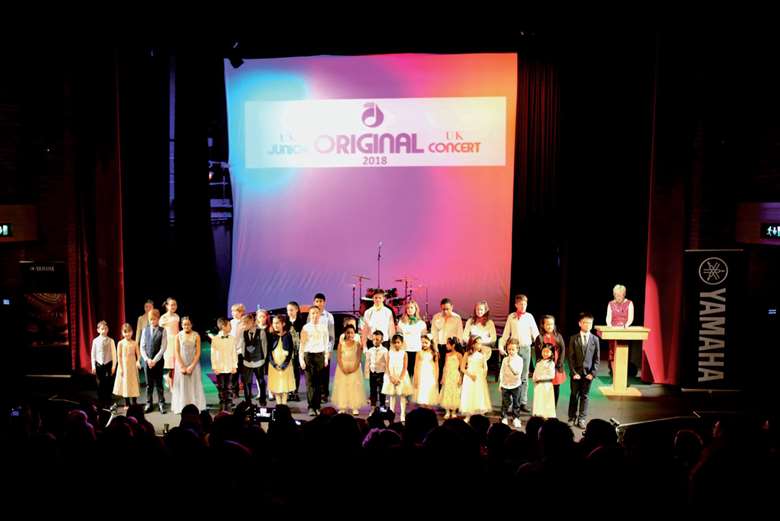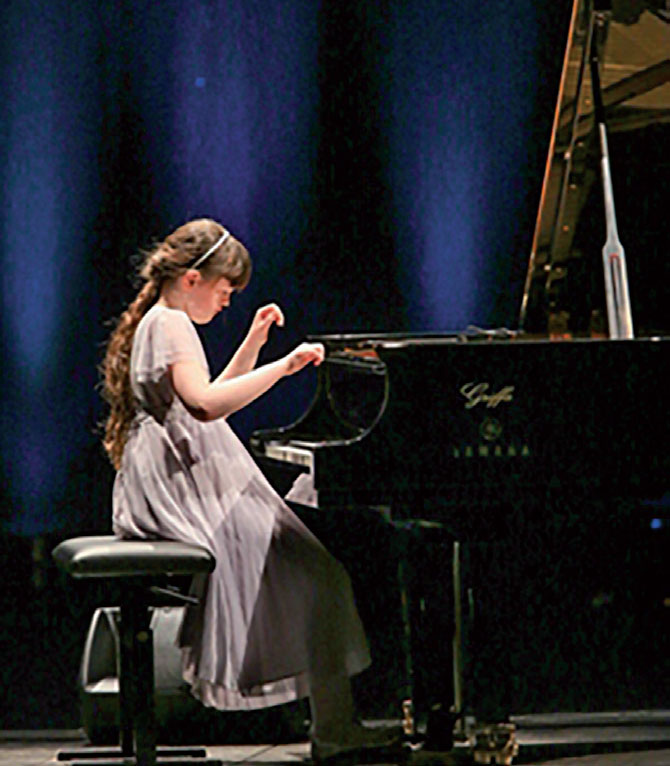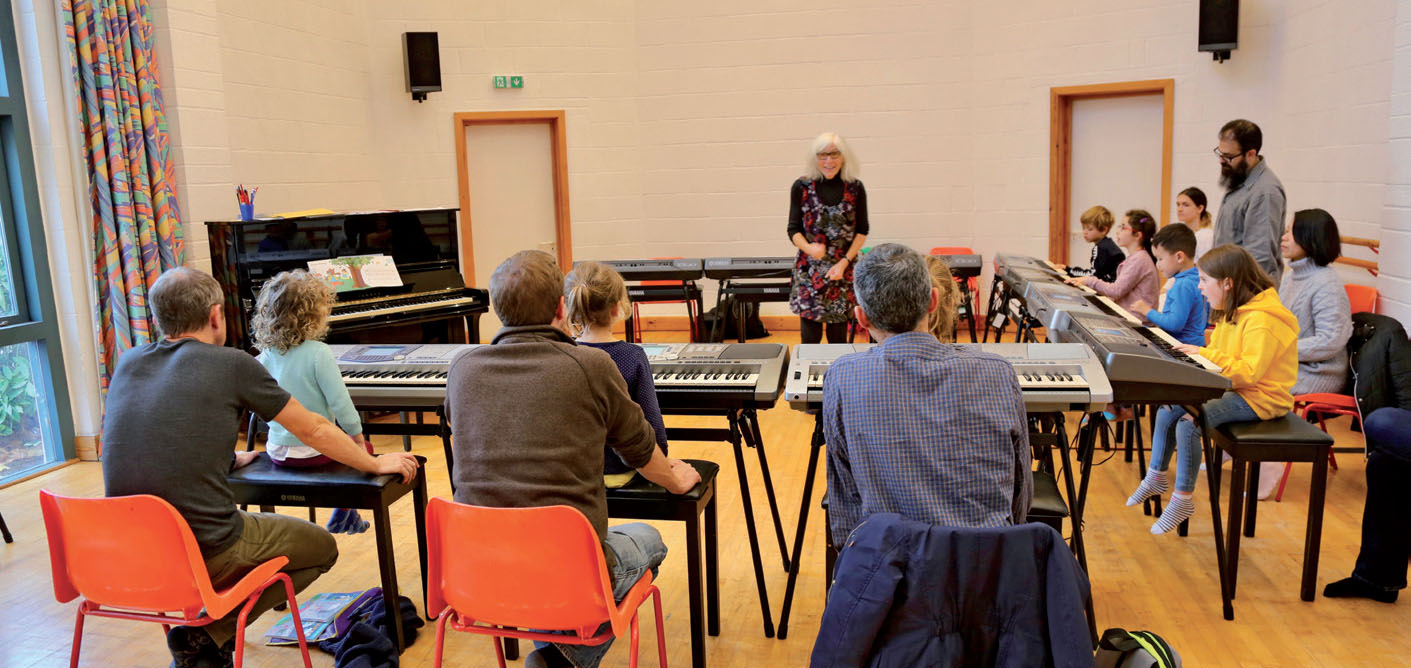Yamaha Junior Music Course
Monday, April 1, 2019
Music Teacher finds out more about Yamaha's educational work through the lens of two of its beneficiaries

Yamaha is known for many things but it is most familiar to musicians as one of the world's most successful and diverse manufacturers of musical instruments. Additionally, the company has an enviable track record of support for music education and is well-regarded as a good corporate citizen in the sector.
Its corporate philosophy is cultural enrichment through music and excellence in the arts, with music education being central to many of Yamaha's core activities. Established in 1954, the Yamaha Music Foundation has taught more than 5 million students globally and currently has over 18,000 teachers in 4,500 locations around the world. The Yamaha Music School system operates in over 45 countries.
Timely education is the school's mission. Its ambition is to match the physical, intellectual and emotional age of the child. This begins with the Junior Music Course (JMC) where pupils start at 4 years of age.
This course centres on the use of solfège where a fixed doh system is used to train children in all the basic music concepts. It's an ‘ear before eye’ approach which allows students to listen, sing, and play. The development of reading music skills is simply a confirmation of what they have done in practice.
One outcome of the teaching is individual creative freedom and composition. Students become creative musicians by writing and performing their own pieces.
Many students from around the world get the chance to showcase their own works through Yamaha's annual Junior Original Concerts (JOC).
The UK has produced many exceptional Junior Music scholars and here we profile two recent success stories. Both look set to make waves on the music scene while advocating the quality of Yamaha early learning.
Sophie Stevenson
Stevenson studied at the Burton upon Trent Yamaha Music School from the age of 4 and has recently been invited to join the Hallé Youth Orchestra.
As a natural part of her JMC training, she studied and became very keen on composition. She took part in a number of JOC including Madrid in 2012 at the age of seven, Venice in 2014 aged nine, and Tokyo in 2015 aged 10.
A chance meeting at the 2014 JOC concert in London with international percussionist (and Yamaha artist) Simone Rebello inspired Sophie to take up orchestral percussion while also continuing her piano and drum studies.

Sophie Stevenson from Burton upon Trent YMS
Stevenson says: ‘The JMC helped me in developing my musicianship skills, in particular my ear. For me, the course was all about learning to express myself through singing and then transferring that to an instrument. We spent so much time in the lessons listening to music, and responding with our own ideas, that it became natural to me to become musically very expressive.
‘Improvisation is also something JMC helped me learn: there's no doubt the tutoring and experiences helped me become a well-rounded musician.’
Sophie entered Chetham's School of Music in 2017 aged 13. Now 15, she is currently studying orchestral percussion, piano, and composition at the prestigious Manchester school.

A JMC class in progress at Matrix YMS Sutton Courtenay
Recent notable performances include the Butlins Mineworkers Brass Band competition, where she was named winning soloist; performing Mahler 6 with the CBSO Youth Orchestra; and becoming principal percussionist at the recent National Children's Brass Band. This led to her being offered a place in the National Youth Brass band.
Sophie's teacher, Kerry Stevenson, says: ‘The JMC introduces children to music at an age when they are completely open to ideas and have an innate ability to soak up sounds around them. Although I have taught JMC for more than 25 years, I never tire of introducing music to children in this totally natural way.
‘Through listening, then singing, then expressing what they have learned by playing it on the keyboard, they build all the key fundamental abilities to be able to play musically and expressively and create their own musical ideas later through either improvisation or composition. I am proud that I have been able to introduce many children to music in this way and give them a love for it that will stay with them, hopefully, forever.’
Sarah Jenkins
At age four, Jenkins commenced her studies at the Yamaha Music School ‘Matrix Arts Centre’ in Sutton Courtenay, near Abingdon.
At age 18, she won the 2017 BBC Proms Inspire competition with her composition ‘Three Miniatures of Ynys Lawd’ which was broadcast on Radio 3. This led to a BBC commision for which she composed ‘Trallali, Trallaley, Trallalera’, which was also performed and broadcast on Radio 3.
Subsequently, Jenkins received the further commission ‘And The Sun Stood Still’, which was performed in December 2018 at the Queen Elizabeth Hall alongside a work by Jonny Greenwood of Radiohead. Now 20, she is studying clarinet at the Royal Welsh College of Music and Drama.
Jenkins, commenting on her musical journey, says: ‘Yamaha's JMC encourages broad thinking and creative exploration from the outset. This is why I love playing and composing. It has given me such an inquisitive ear and desire to explore.
‘Being able to learn alongside others in group lessons from the beginning gave me my love of ensemble playing and chamber music. It gave me a deep understanding of how parts “fit together” and of how to actively listen and respond to the creativity produced by others around me. Brilliant teaching gave me the confidence to trust my musical instincts.’
Jenkin's JMC teacher was Lindsay MacKenzie: ‘I've been teaching JMC for 30 years and I continue to learn so much from my students. The curriculum is comprehensive – it covers not just piano performance but also singing, creating, arranging, harmonising, ensemble, and more. It's shown me how deeply and naturally young children absorb musical concepts.’
Final words
Nigel Burrows is the manager of the Yamaha Music School network in the UK. He says: ‘My first real experience of the JMC programme came in 1977, when five young ambassador students from Yamaha Music Schools in Japan came to London and performed at the Royal Festival Hall – the youngest was seven and the oldest was 15. All the students played their own original compositions, which left the audience in awe of their talents.
‘There is no doubt that the whole Yamaha approach produces excellent results. It puts young students on the path to making great music that is not only creative and imaginative but also built on solid musical principles.
‘Years later, I saw the same results with my own daughter who started the programme at the age of four and went on to become a very proficient pianist and flautist.
‘That said, it has only been within the last 10 years that the real fruits of this programme have come to bear in the UK. We now have a growing number of students who regularly produce compositions and performances of a high standard. They are recognised through the many JOCs that are staged across Europe and the rest of the world.
‘In over 40 years of being involved with Yamaha Music Schools, I have yet to see any other programme that can produce such consistently high levels of musical creativity with such young students.’
Any readers interested in becoming a Yamaha Music School teacher should contact Burrows by email: nigel.burrows@music.yamaha.com.

